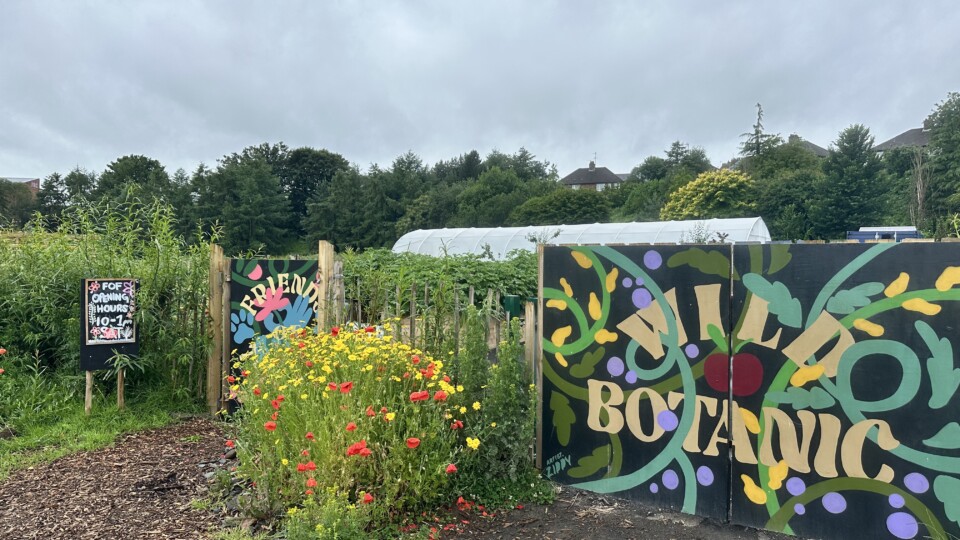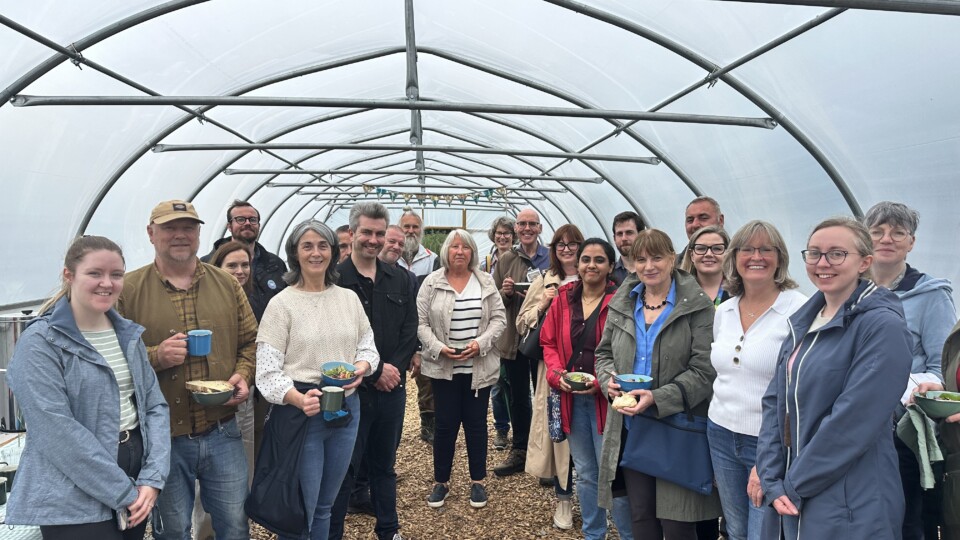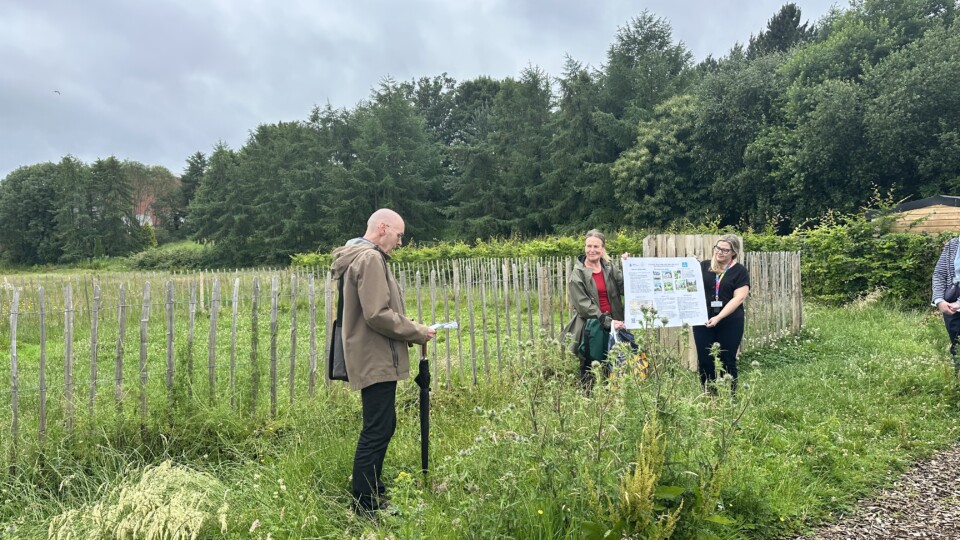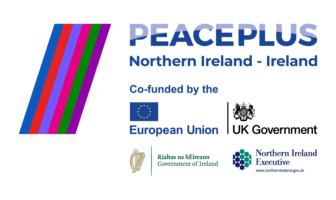Summary of the Project
UPSURGE is a flagship climate adaptation initiative transforming part of Lower Botanic Gardens into a living research and community engagement site. The project tests and demonstrates nature-based solutions (NBS) that address urban climate challenges such as pollution, biodiversity loss, urban heat, and community disconnection from nature.
The Belfast initiative includes four integrated work areas:
- Agroecological community gardens
- Soil contamination research and testing
- Habitat restoration and landscape improvement
- A demonstration resilience garden
These interventions support urban cooling, improved growing conditions, carbon capture in soils, and increased biodiversity. Over the past year, the site has expanded to include raised beds, a tree nursery, rainwater harvesting systems, wetland establishment, solar PV, a compostable toilet, mixed hedgerows, habitat works and a new outdoor learning area.
Alongside environmental benefits, the project serves as a civic learning space where residents, researchers and volunteers collaborate, exchange knowledge, and build new skills in sustainable food growing and climate-resilient land management.
The site also supports the goals of the Belfast Sustainable Food Partnership, which promotes a fair, climate-friendly and community-led food system for the city.
The UPSURGE project is supporting the following Sustainable Development Goals:
SDG 2 – Zero Hunger: The community garden and urban growing programmes enhance local food production, resilience and skills, while supporting food accessibility through organisations like Source Grow.
SDG 3 – Good Health and Wellbeing: The site provides accessible green space, opportunities for active outdoor participation, and improved air quality, positively contributing to mental and physical wellbeing.
SDG 4 – Quality Education: Local volunteers and community growers participate in structured learning, including permaculture training, practical demonstration tours and ongoing knowledge exchange with researchers.
SDG 6 – Clean Water and Sanitation: Rainwater harvesting systems and wetland creation strengthen natural water management, reduce runoff and improve the site’s resilience to flooding.
SDG 7 – Affordable and Clean Energy: Solar PV installations support off-grid low-carbon infrastructure within the site.
SDG 9 – Industry, Innovation and Infrastructure: UPSURGE acts as a real-world research laboratory testing innovative climate technologies and environmental monitoring infrastructure.
SDG 11 – Sustainable Cities and Communities: The project forms part of Belfast’s Resilience Strategy, supporting a city-wide transition to climate resilience and net-zero development.
SDG 12 – Responsible Consumption and Production: Agroecological methods, low-waste approaches, composting and circular resource use contribute to more sustainable consumption practices.
SDG 13 – Climate Action: Nature-based solutions on-site directly mitigate localised climate risks, including heat, flooding, soil degradation and air pollution, as well as decarbonisation as nature-based solutions sequester and store carbon.
SDG 15 – Life on Land: Habitat restoration, hedgerow planting and wetland development enhance biodiversity, strengthen soil ecology and improve natural ecosystem services.
SDG 17 – Partnerships for the Goals: UPSURGE exemplifies multi-level collaboration between government, academia, community groups, European partners and local volunteers.




















